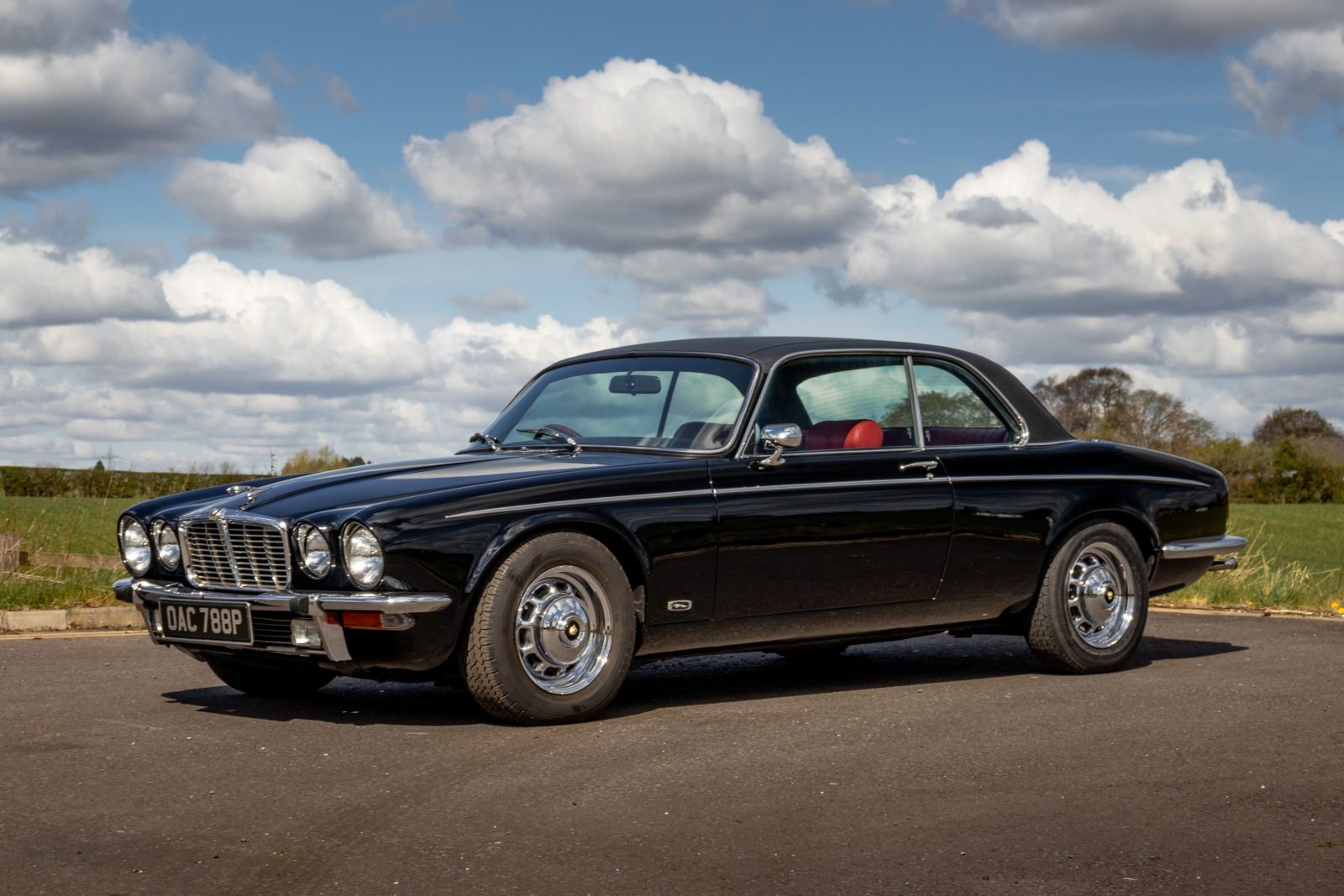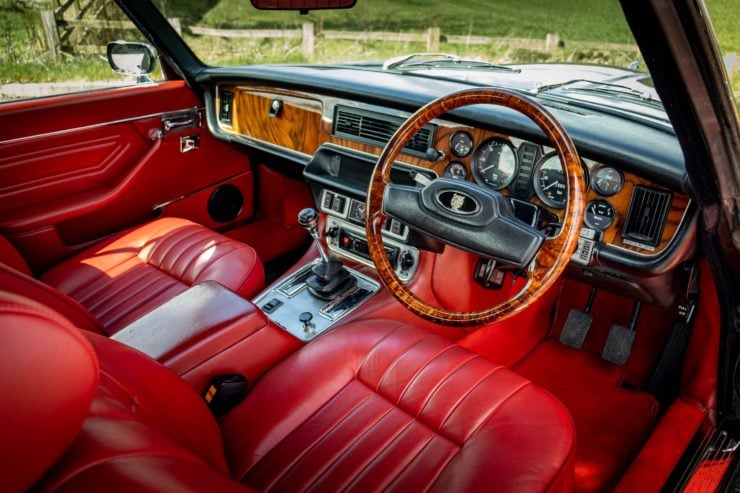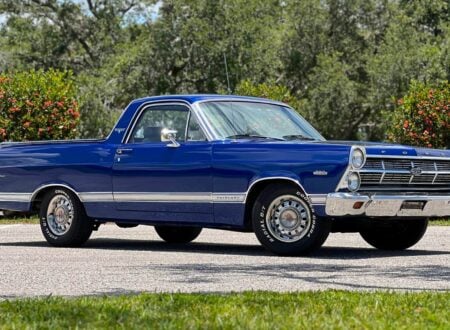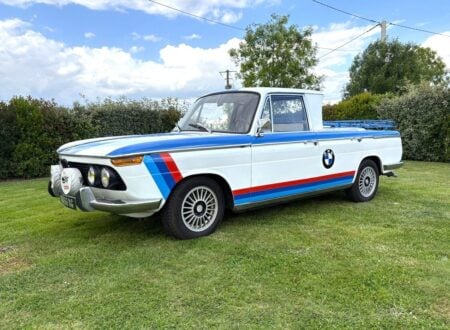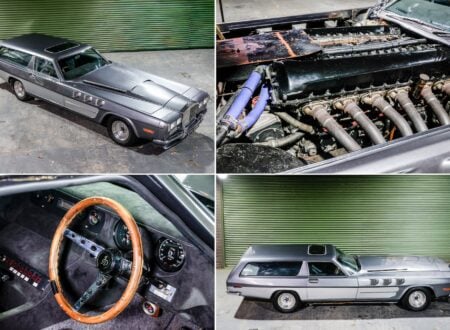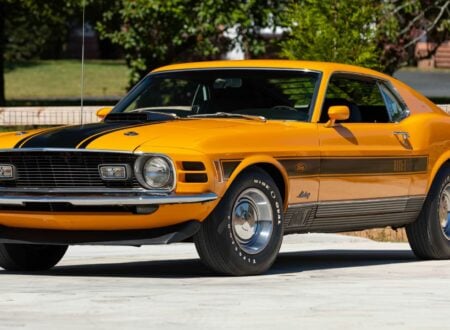The Jaguar XJC is a sporting two-door grand tourer released by the British automaker in 1975 and sold until 1977, this short production run and the 10,000 or so that were made make it one of the rarest production Jaguars from the era.
The XJC you see here has had an extensive mechanical and cosmetic restoration, it’s now being offered for sale to benefit the Ukrainian Humanitarian Appeal – a charity providing food, water, shelter, and healthcare to many of the 5+ million people who have fled the conflict.
Fast Facts – The Jaguar XJC
- The Jaguar XJC is said to be one of the rarest production Jaguars made, with just 10,426 made over two years between 1975 and 1977.
- The XJC was the final Jaguar to have been developed with input by Sir William Lyons, the company founder before his retirement.
- The short wheelbase four-door Jaguar XJ sedan formed the platform for the XJC, with the “C” appended to the model name to denote that it’s a coupe. Longer doors were developed as well as a pillarless design, and you could order an XJC with either the XK straight-six or the Jaguar V12 under the hood.
- The car shown here is a 1976 Jaguar XJC, it’s fitted with the multiple Le Mans-winning XK straight-six which sends power to the rear wheels via a 4-speed manual with overdrive. The XJC has independent front and rear suspension, and disc brakes all round.
“The Finest Jaguar Ever”
The development of the Jaguar XJ was well underway in the mid-1960s, it was to be a new car for a new decade, replacing the aging Jaguar Mark II and S-Type as the company’s luxurious new four-door sedan.
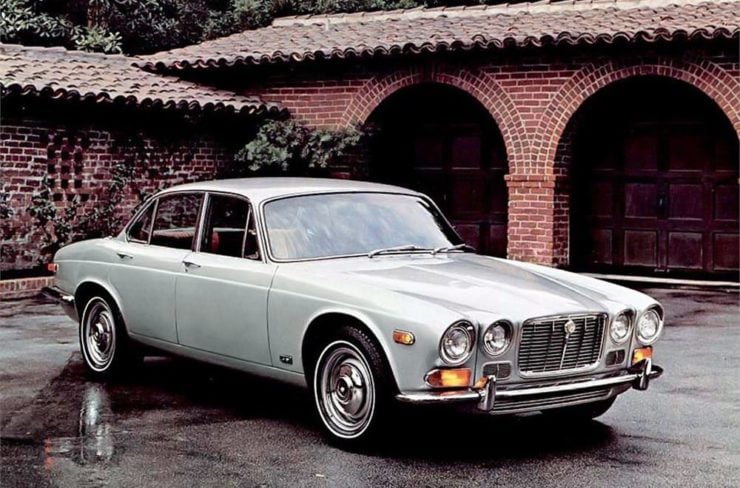

The development was overseen personally by company founder Sir William Lyons, sometimes referred to simply as “Mr Jaguar” due to the fact that he ran the marque for decades and became inextricably linked to it.
The new XJ was lower, sleeker, and faster than the sedans that had come before it. It was still luxurious of course, but in a sporting way that would have broad appeal. The car was given a unibody design, independent front and rear suspension, and disc brakes on all four corners, with the rear discs inboard.
The first production XJ was released in 1968 and sold until 1973, it’s now retroactively known as the Series 1. It was followed by the Series 2 and the Series 3, as well as the XJC, and it remained in production for 24 years in total until 1992.
At the time of its release Jaguar ran a marketing campaign calling their new XJ “the finest Jaguar ever produced,” and there can be no doubt that they were right – though the E-Type faithful might have a thing or two to say about it.
The Arrival Of The Jaguar XJC
Sir William Lyons and the team at Jaguar had always intended for there to be a two-door version of the XJ sedan, early styling mockups had been completed in the late 1960s however it wasn’t until 1975 that the car was released.
Both long and short wheelbase versions of the XJ four-door sedan had been developed, the XJC would be based on the short wheelbase version. The B-pillar was removed entirely and one lengthened door was fitted to each side – the doors were made by joining together two standard XJ doors to make them longer.
One of the biggest development problems with the XJC was the wind noise caused by the side widows being pulled outwards at their tops by aerodynamic forces as the car was underway. It took a long time for a solution to this to be found, a new mechanism that forced the windows inwards and into the rubber seals when closed.
Chassis rigidity was another issue on prototype cars, it was caused by the removal of the B-pillars however various strengthening additions were made to the XJC to stiffen it to match the XJ.
Finally by 1975 the car was ready, it was released in the Series 2 XJ platform and offered in four major configurations – Jaguar XJC 4.2, Jaguar XJC 5.3, Daimler Sovereign, Daimler Double Six. The 4.2 and the Sovereign were powered by the XK straight-six and the 5.3 and the Double Six were powered by the V12.
For reasons unknown, all XJCs were given black vinyl tops. It was on trend in the mid-1970s though as tastes have changed many have been removed, with the roof then painted to match the car.
Both manual and automatic gearboxes were offered though almost all got the automatic, this was intended as a grand tourer after all.
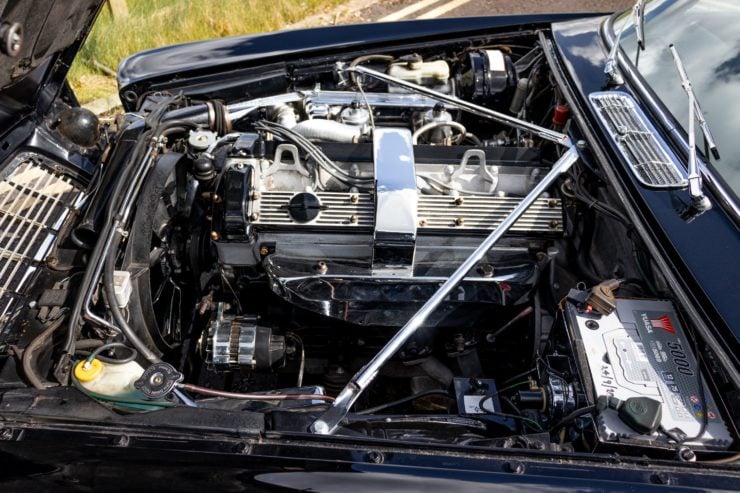

Production ended in 1977, though some unsold cars are said to have been sold as 1978 models in the following year.
The Jaguar XJS had been released in 1975 and it was supposed to be Jaguar’s halo car, no one knows exactly why the XJC was discontinued but it was almost certainly something to do with its sibling GT coupe.
The 1976 Jaguar XJC Shown Here
The XJC you see here is one of the nicest examples we’ve seen come up for sale in recent memory, likely because it’s been through an extensive mechanical and cosmetic restoration which included a conversion to the 4-speed manual (with overdrive) transmission.
The car is finished in jet black, perhaps the only color to truly suit the original black vinyl roof. The interior is finished in red leather with matching carpets, and there’s all the wood trim and chrome you might expect from a classic Jaguar interior.
As mentioned in the introduction, this XJC is being sold with the benefits going to the Ukrainian Humanitarian Appeal – a charity providing food, water, shelter, healthcare, and protection to many of the over 5 million people who have fled the conflict in their homeland.
If you’d like to read more about this car or register to bid you can visit the listing here, it’s due to roll across the auction block with H & H Auctions on the 22nd of June with no reserve.
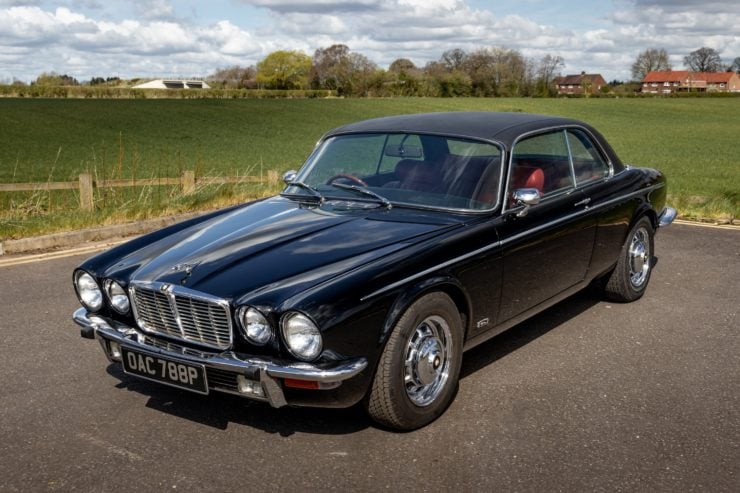
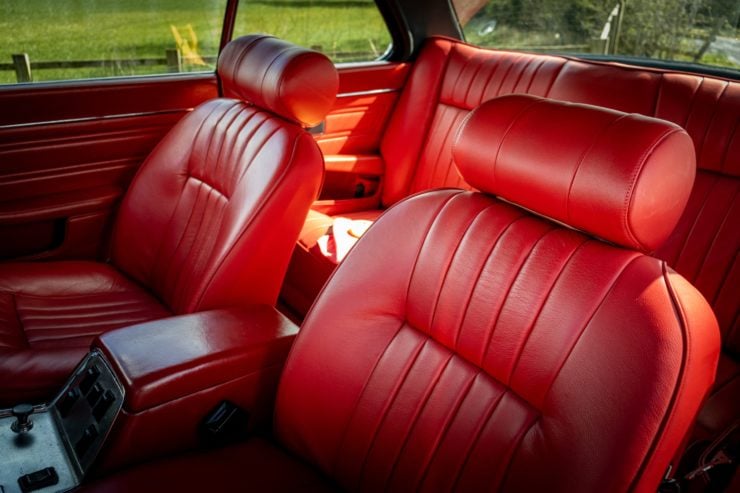
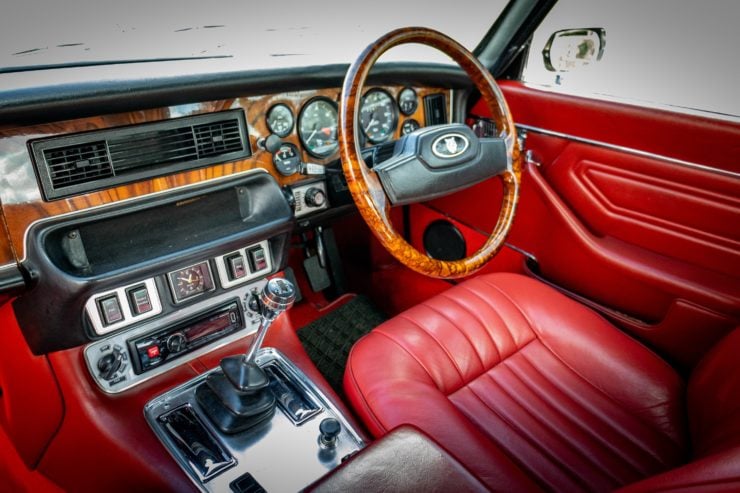
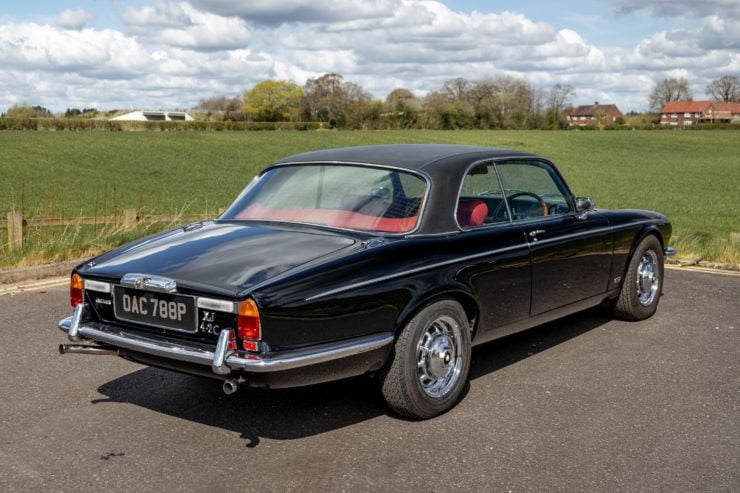
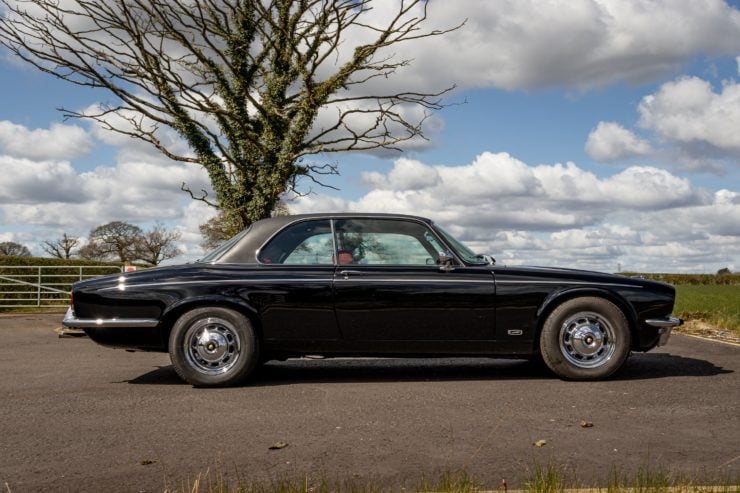
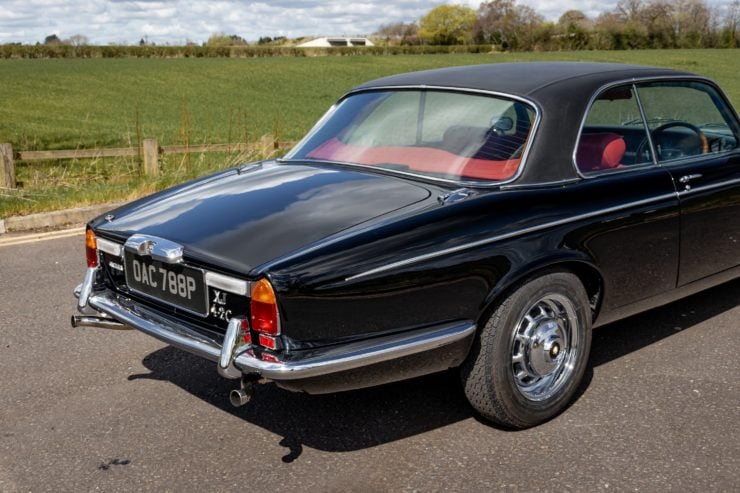
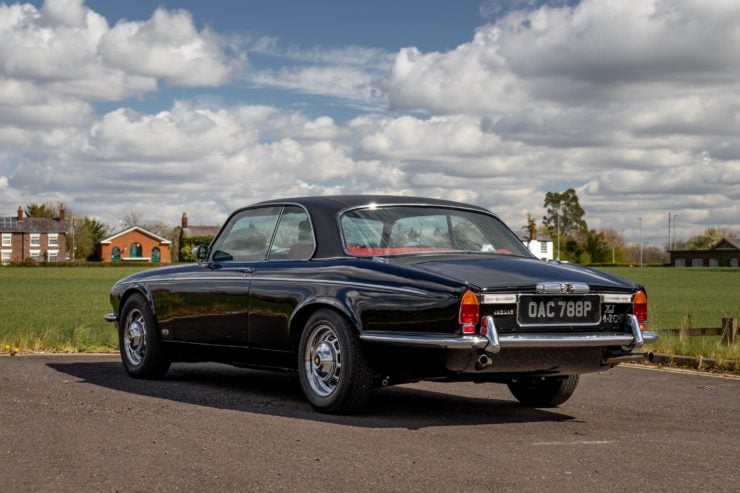
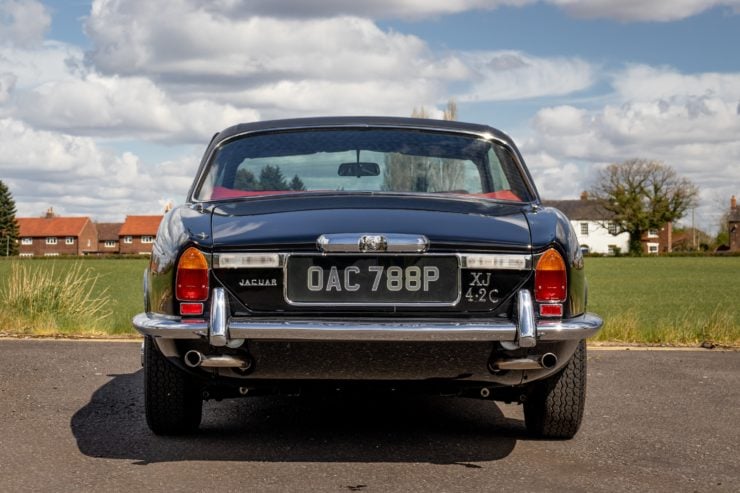
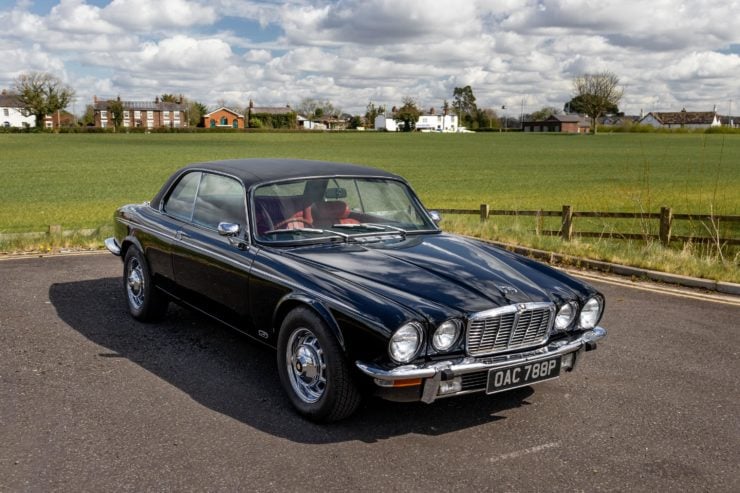
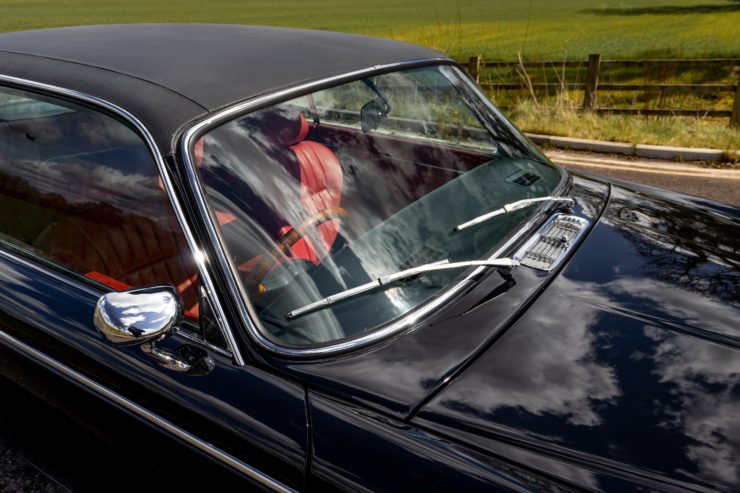
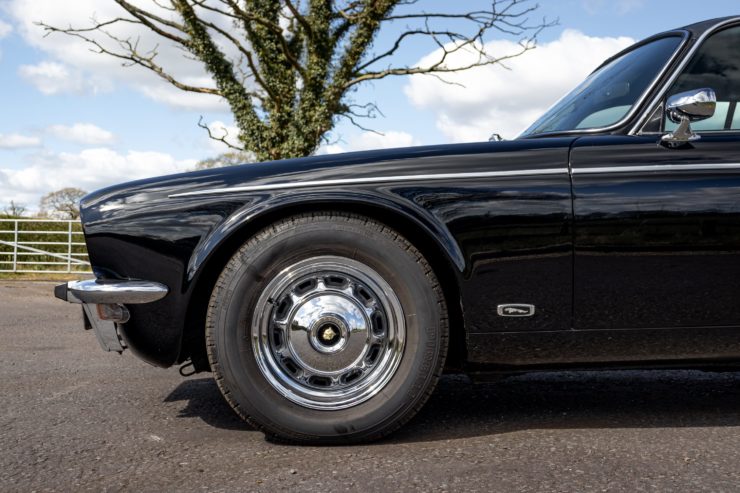
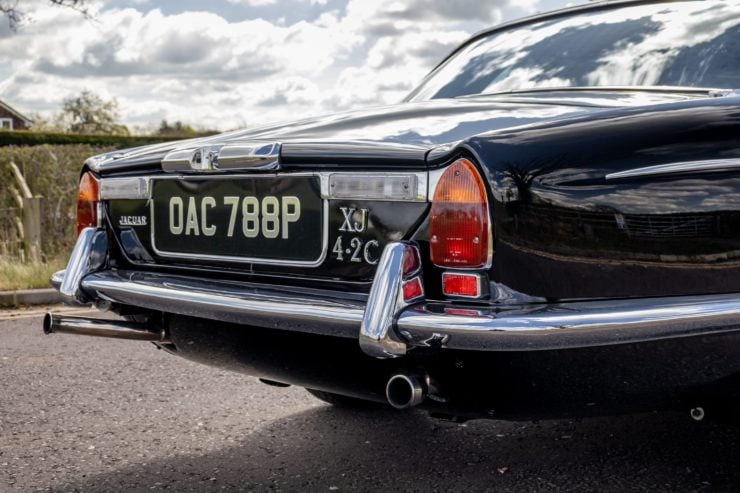
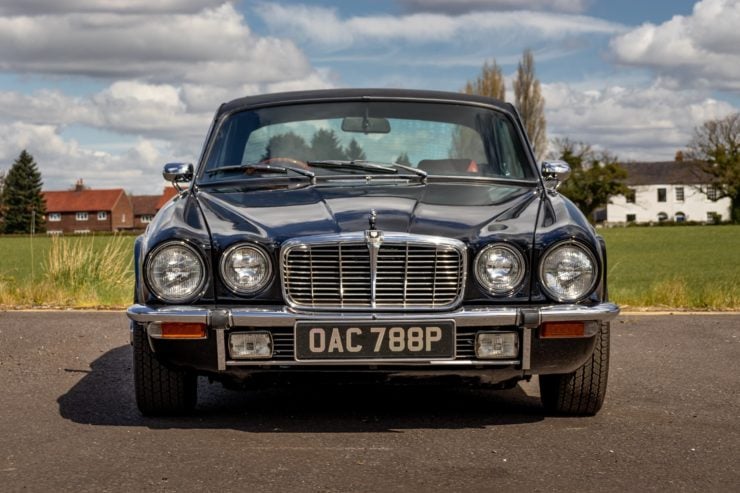
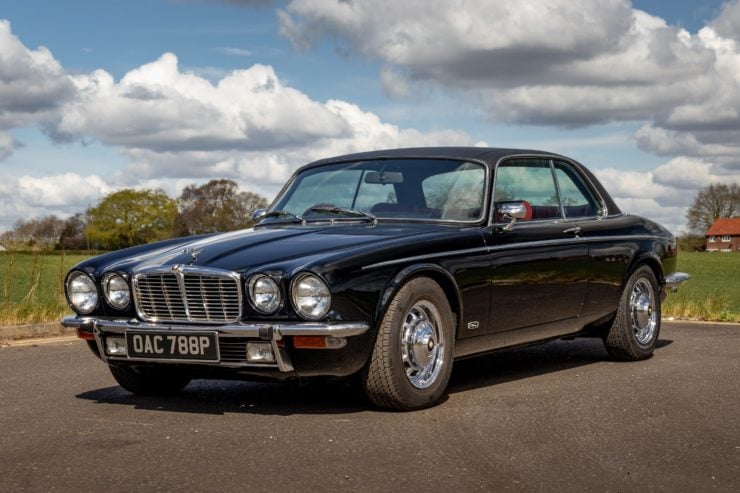
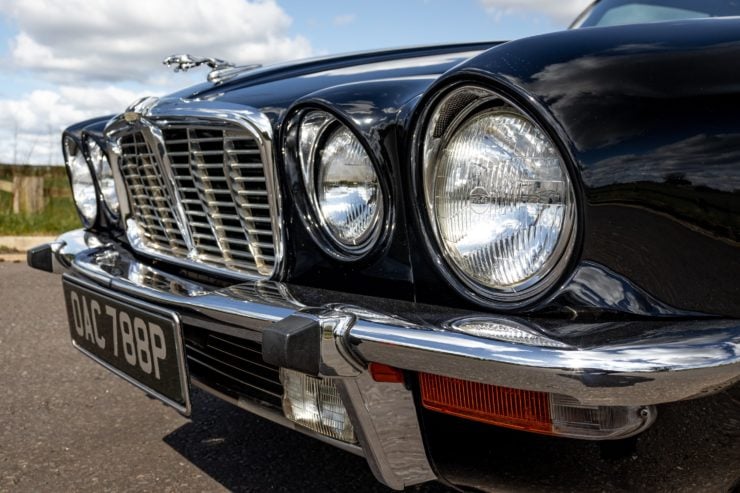
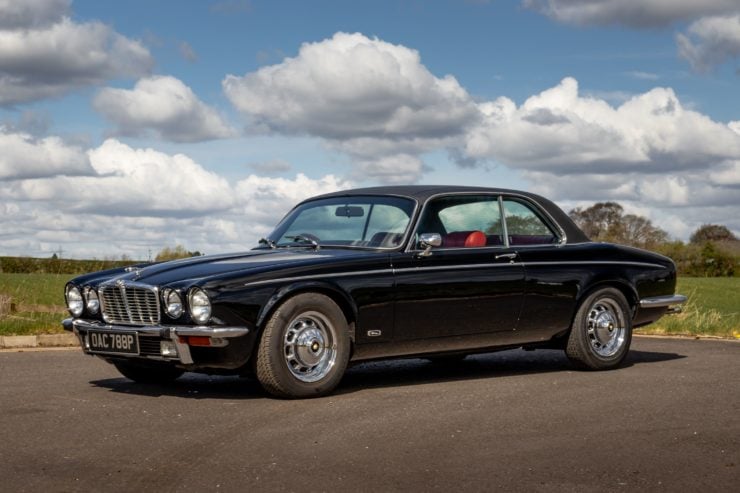
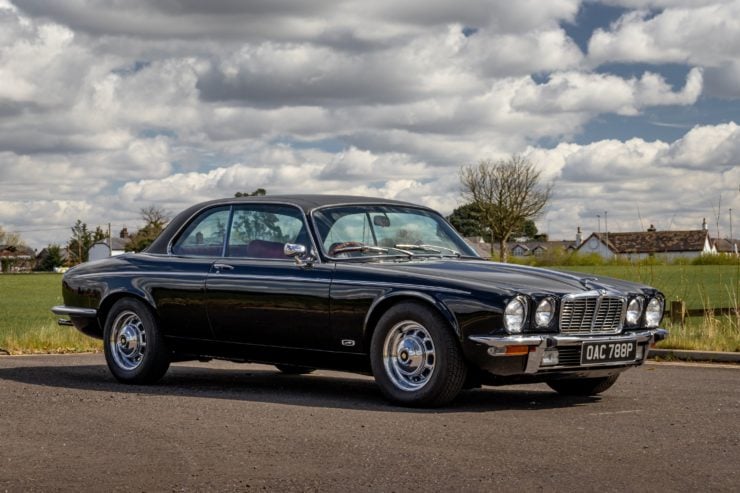
Images courtesy of H & H Auctions

